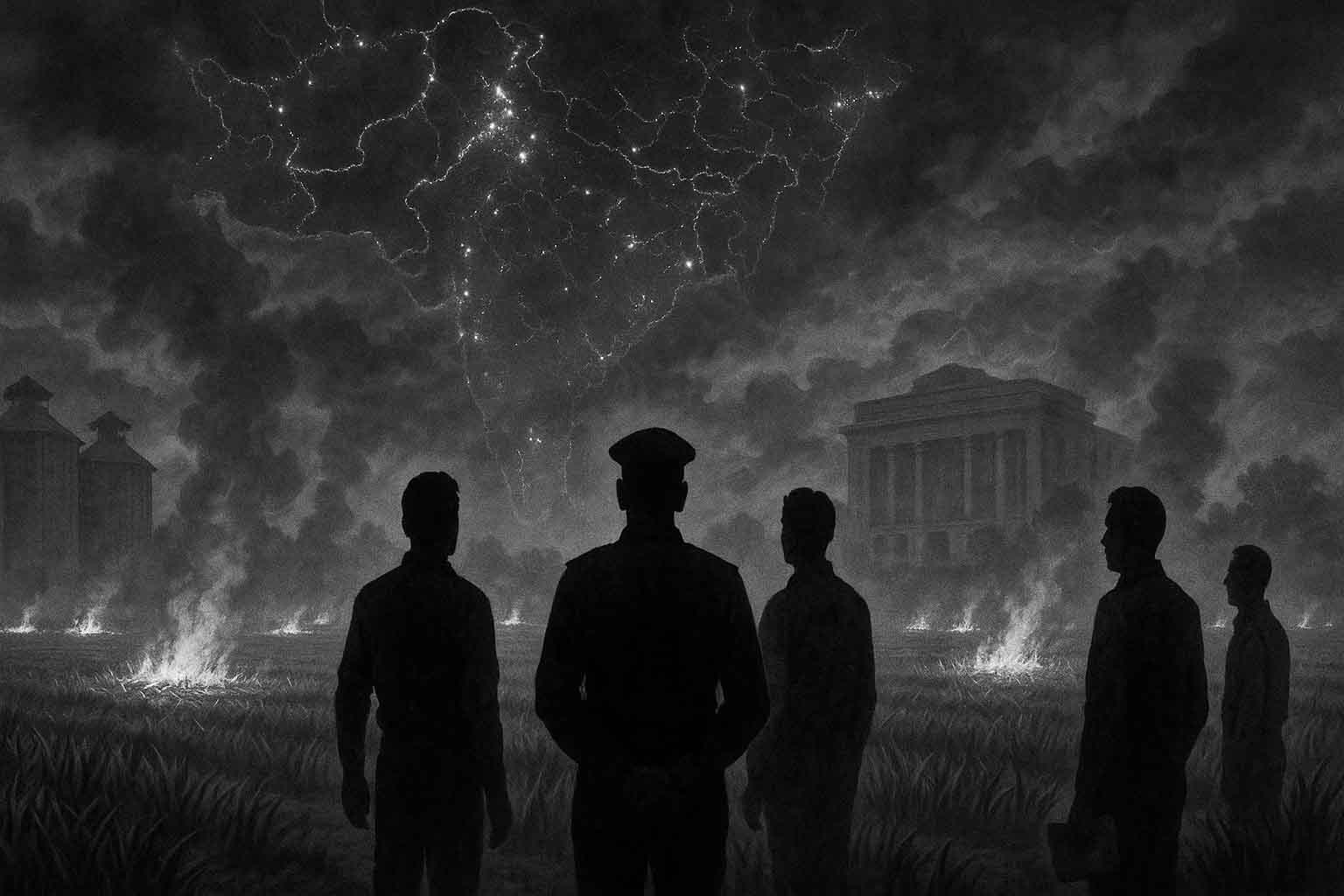New Delhi, October 4:
As North India braces for its annual pollution crisis, the Commission for Air Quality Management (CAQM) has issued a sharp directive that could change the accountability matrix around stubble burning. District magistrates and deputy commissioners across Punjab, Haryana, Rajasthan (NCR region), and Uttar Pradesh have been authorized to file complaints against government officials—including supervisory officers and station house officers (SHOs)—if they are found negligent in curbing farm residue fires.
The move, backed by Section 14 of the CAQM Act, signals a new era of administrative responsibility. It follows scathing court observations that deterrence against stubble burning cannot succeed without penal accountability for those tasked with enforcement.
Why Stubble Burning Matters
Every winter, the Delhi-NCR region becomes a gas chamber, with air quality sinking to “severe” levels. Studies attribute up to 40% of particulate matter pollution in peak smog episodes to stubble burning in Punjab and Haryana. Despite subsidies for mechanized alternatives like Happy Seeders and promises of biomass procurement, enforcement has lagged.
Until now, much of the blame has been placed on farmers. The CAQM’s new order, however, flips the script by targeting officials responsible for enforcement—from village-level patwaris to senior district officers.
Key Features of the CAQM Order
- Legal Authority: Districts can file complaints under Section 14 of the CAQM Act.
- Scope: Action against government officials, SHOs, and supervisory officers.
- Trigger: Failure to prevent or act upon instances of stubble burning.
- Monitoring: ISRO-supported satellite imagery will track fire incidents in real time.
- Complementary Measures: Subsidies for equipment and biomass buy-back programs remain in place.
Why This Step Now?
The directive comes after repeated warnings from the Supreme Court and High Courts urging strict deterrence against stubble fires. Despite thousands of reported incidents annually, legal complaints against negligent officers were virtually non-existent.
A senior CAQM official told Sarhind Times:
“We cannot have a situation where responsibility is endlessly shifted. If farmers are penalized, officials failing to enforce must also face action. This ensures a culture of accountability.”
The Enforcement Challenge
Punjab claims to have issued warnings to dozens of officers but has stopped short of filing formal complaints. The CAQM found this inadequate. By empowering district heads directly, the commission has sought to cut through bureaucratic inertia.
- Enforcement Gap: Farmers often burn residue at night or in remote areas.
- Technology Aid: Satellite monitoring can identify hotspots quickly.
- Administrative Pressure: Legal action against officials may force stricter ground-level patrolling.
Farmers’ Concerns
While environmentalists welcomed the move, farmer unions expressed caution. They argue that punitive approaches without adequate support risk backfiring.
- Logistics Gap: Machinery like Happy Seeders is often unavailable on time.
- Payment Delays: Government procurement of biomass residue frequently faces arrears.
- Economic Strain: With narrow harvest windows, burning remains the cheapest disposal method.
“Holding officers accountable is fair, but unless the state supports farmers with timely incentives, the problem will not vanish,” said Jagjit Singh, a farmer leader from Patiala.
Environmental & Public Health Impact
The stakes are enormous:
- Health Costs: AIIMS studies link winter smog to spikes in respiratory illnesses, especially among children and the elderly.
- Economic Costs: Lost productivity and healthcare burdens cost NCR billions annually.
- Global Scrutiny: Delhi’s smog often makes international headlines, damaging India’s global image.
Political Dimension
With elections approaching in Haryana and Punjab, the move carries political overtones. Opposition parties have accused ruling administrations of negligence in managing farm waste, while governments counter that blame cannot be pinned on one state.
Delhi’s administration, which has long accused Punjab and Haryana of inaction, is likely to use the CAQM’s directive as ammunition in its pollution narrative.
Experts’ Perspectives
- Environmentalists: Applauded the accountability framework but stressed that farmer-centric solutions must expand.
- Policy Analysts: Saw this as a precedent-setting order that may extend to other environmental violations.
- Legal Experts: Noted that holding officials liable could finally plug enforcement gaps, but only if implemented sincerely.
The Road Ahead
The real test will be in implementation. Will district authorities actually file complaints against negligent officials? Or will the order remain symbolic? Much will depend on political will, farmer cooperation, and the robustness of support measures.
With the pollution season looming, NCR residents hope this accountability shift translates into cleaner air, not just another paper directive.
Conclusion
By empowering districts to act against officials, the CAQM has turned the spotlight on governance. For too long, the fight against stubble burning has been portrayed as a battle between environmentalists and farmers. The new order ensures that administrative accountability becomes part of the equation.
Whether this brings measurable change will be evident in the coming weeks as satellites track fire counts and the NCR braces for winter smog.
#AirQuality #CAQM #StubbleBurning #NCR #Environment #PublicHealth #Policy #CleanAir




+ There are no comments
Add yours